Making the Case for Astronomy at EWASS 2019
The European Week of Astronomy and Space Science (EWASS) is the annual conference of the European Astronomical Society (EAS) and the largest meeting on astronomy held in Europe. For the past three years, Europlanet 2020 RI has collaborated with the EAS, ESA and the RAS to convene a session on public and political engagement: “Making the Case for Astronomy”.
EWASS 2019 took place under heatwave conditions at the Manufacture des tabacs, University of Lyon 3 from 24-28 June. The 2019 edition of Making the Case for Astronomy ran for a full day of parallel sessions and was split over three themes: evaluation, engaging with non-traditional audiences, and talking to policy-makers. The sessions included time for questions and wider discussion with all participants attending.
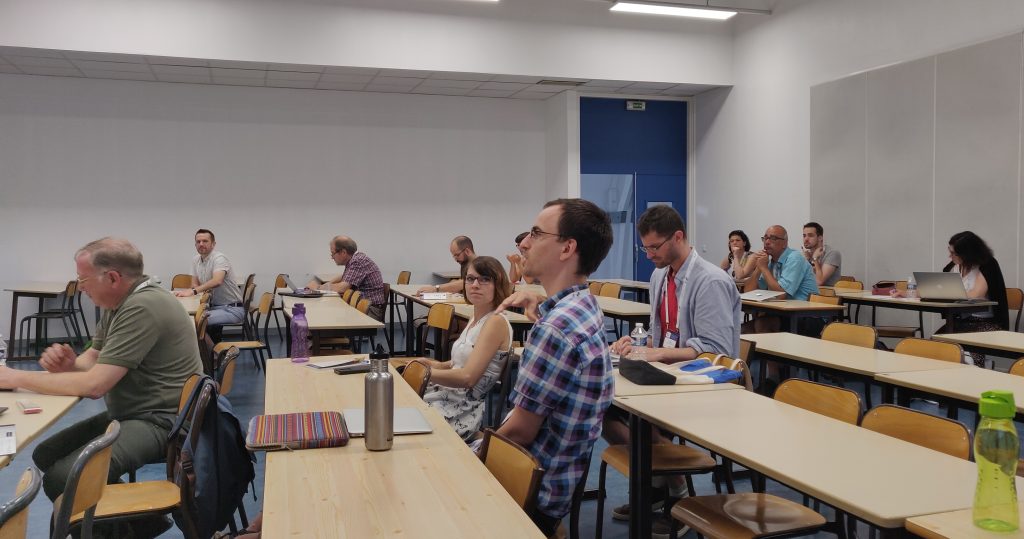
Measuring the impact of communication and outreach
The first session focused on lessons learned from social science and evaluation. Marta Entradas of the LSE, UK, and ISCTE-IUL, Portugal, kicked off with a presentation on her 2018 study of the public engagement practices and motivations of 2587 members of the IAU. “Bustling public communication by astronomers around the world driven by personal and contextual factors” is the largest international investigation of astronomy outreach to date. Marta presented a positive picture of self-motivated researchers, who in all regions of the world are striving to engage external communities with their science.
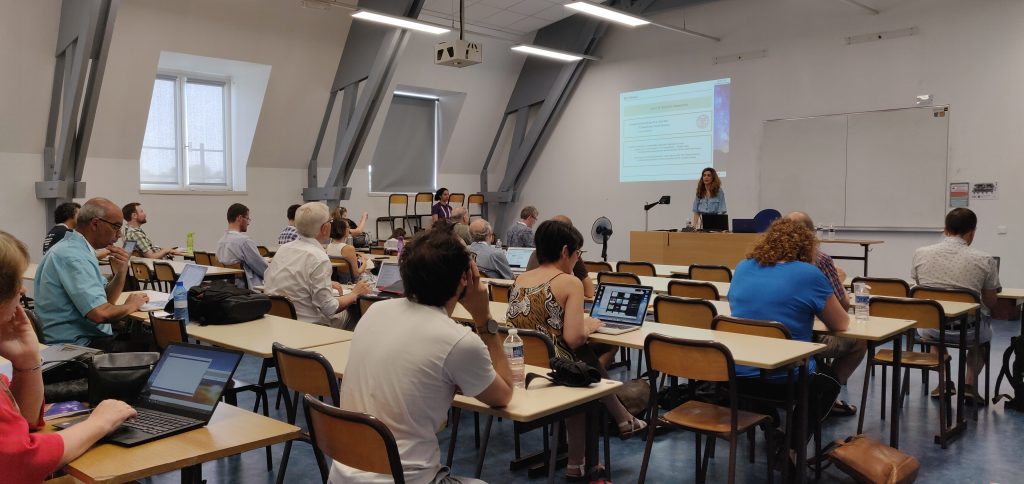
Eric Jensen of the Institute for Methods Innovation, UK, presented an evidence-based approach to public engagement, focusing on how evaluation can lead to more effective communication and outcomes.
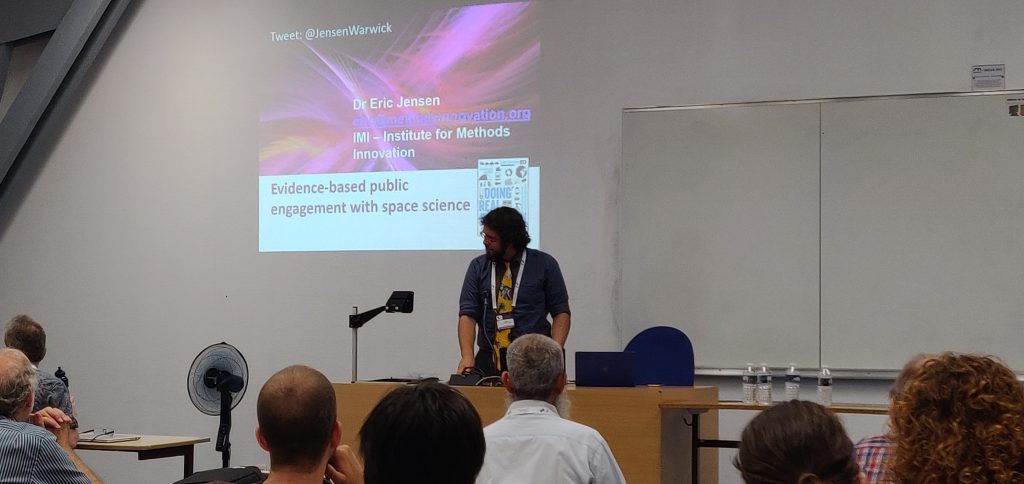
We finished the final session with a presentation by Anita Heward on the Europlanet Evaluation Toolkit. Karen Bultitude and Jen DeWitt developed the toolkit for Europlanet 2020 RI with the aim of empowering outreach providers and educators in measuring and appraising the impact of their activities. The kit includes 14 easy-to-use data collection tools and two data analysis tools for deriving more in-depth information from data collected.
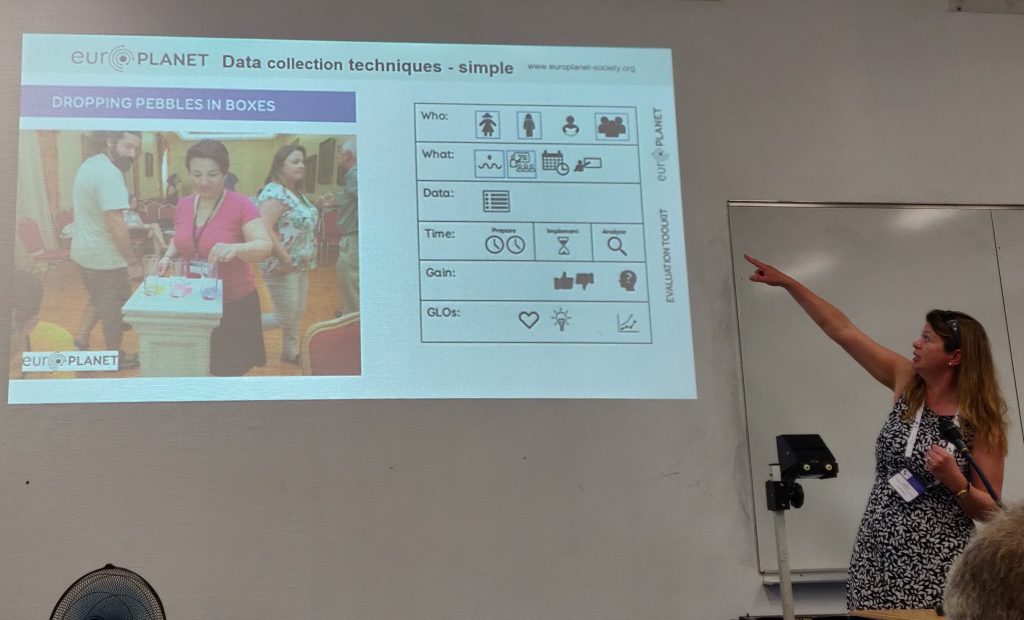
Engaging with different audiences
The second session started with a review by Mark McCaughrean of ESA’s recent communications activities aimed at non-traditional audiences. Initiatives include “Space Rocks” music events and the “Ambition” science fiction film, which has opened up opportunities to participate in science fiction conventions such as FEDCON.
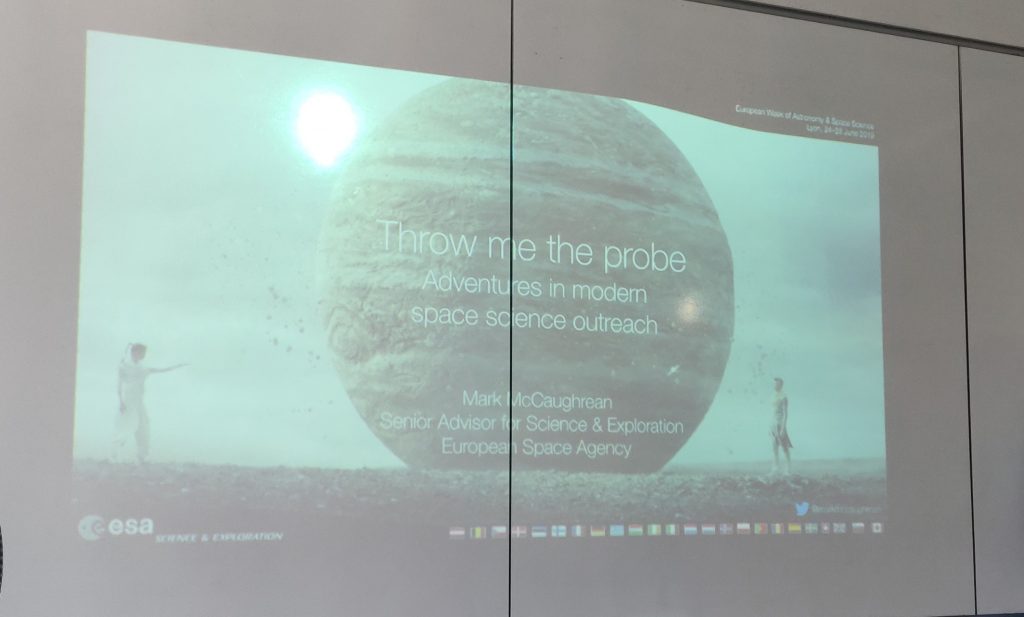
Jacqueline Campbell of UCL’s Mullard Space Science Laboratory followed this with a dynamic talk on reaching out to people in society – particularly young people – who feel that science is “not for them”. She highlighted the importance of role models and drew analogies with sport in discussing how science can become more accessible by opening it up to society at all levels, not just those individuals that wish to pursue a career in STEM.
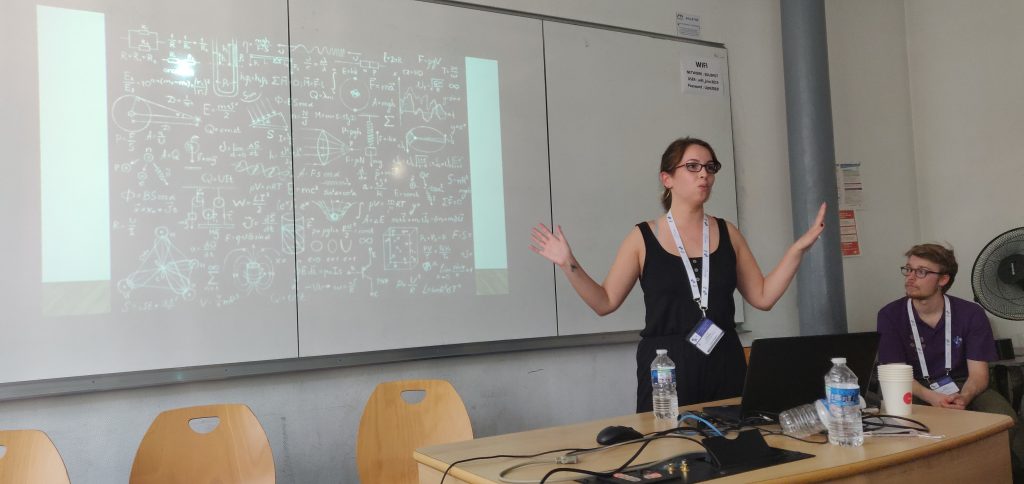
Next, Michelle Willebrands brought a pan-European perspective with a presentation on the European IAU Regional Office of Astronomy for Development (E-ROAD), which has been established at Leiden Observatory and is operated jointly by the EAS and Leiden University. While astronomy is well established in Europe, the continent faces its own challenges in achieving the United Nations Sustainable Development Goals in Europe. The new E-ROAD will find ways in which astronomy can improve aspects of European society.
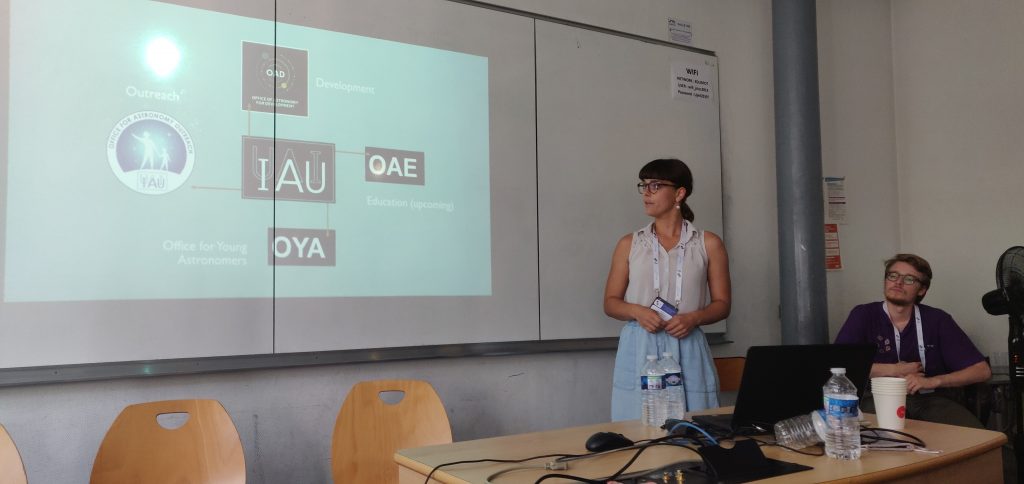
Finally, Gina Maffey of JIVE discussed the challenges of communicating radio astronomy to public audiences (and the joys of unscrambling acronyms within acronyms). Gina rounded off the first part of the session with a practical exercise in communication, where participants were asked to describe their work in one sentence to their neighbour and find out what kind of visual imagery their words evoked.
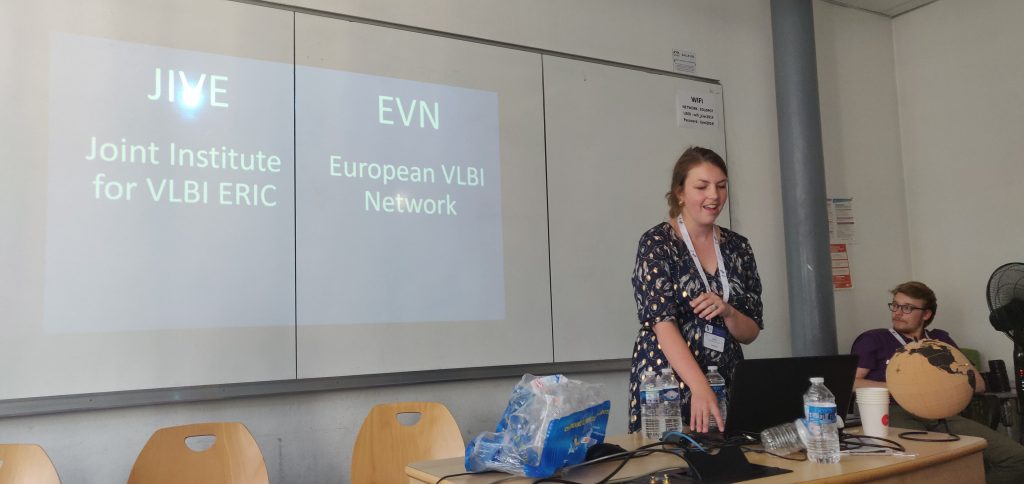
Talking to policy makers
The third part of the session was opened by Clare Moody, the former MEP for the Southwest of the UK, who gave practical advice on engaging with policy makers. Clare highlighted the timeliness in the aftermath of the European elections for engaging with the new intake of Members of the European Parliament, who are currently scoping out their areas of interest. Clare’s top tips included:
- Identify a cluster of people to target through your Member State. Look at the backgrounds of MEPs to see who has an interest in science or who has a link to a particular university. This kind of mapping early on can pay dividends in developing good relationships with policy makers.
- Look at the target committees that will be formed in July 2019 and the appointed rapporteurs. The ITRE Committee is particularly important for astronomy, as is the Budgets Committee.
- As well as developing a good relationship with an MEP, it’s also vital to have a good relationship with the MEP’s office team. The offices are an important part of policy development and are gatekeepers to the MEPs.
- Be clear about why you are engaging with a policymaker. What do you want to get out of developing the relationship? What knowledge or expertise can you bring to the MEP that will help them in their work or make them look good. Tell a coherent story.
- Keep in regular contact with your MEP and their offices, and with activities within the Parliament. This will make it easier when you need something e.g. to ask for a hearing in the run-up to a key decision.
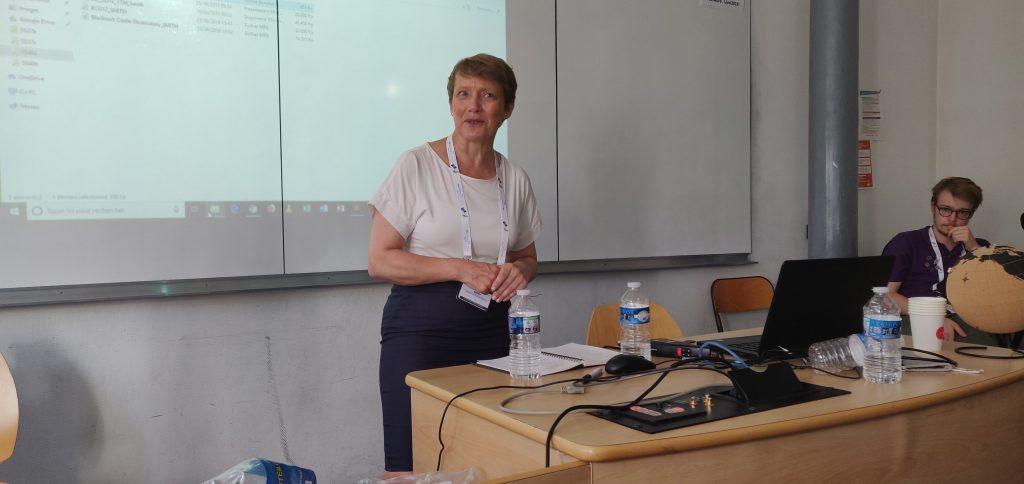
Next, Andy Williams, the External Relations Officer at the European Southern Observatory, talked about creating a favourable policy landscape for astronomy. Andy covered strategies for engagement with political and government actors and gave sound advice on how to act as a “policy entrepreneur”, including the need to understand the timeline of policy making, to build up contextual knowledge of policy systems, and to capitalise on external events and successes.
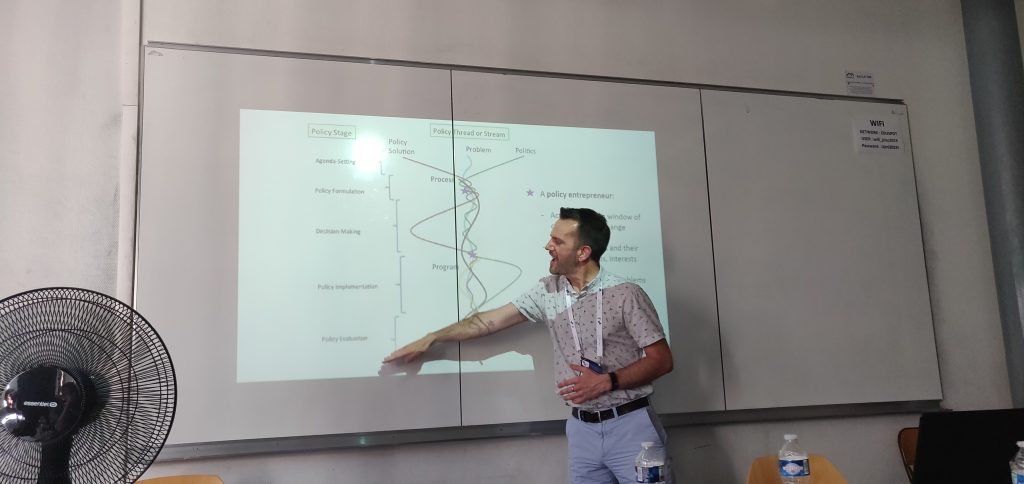
Robert Massey, Deputy Director of the Royal Astronomical Society (RAS), gave a perspective on policy engagement during a turbulent time in UK politics. The EU currently plays a vital role in supporting UK astronomy, which is one of the most international fields of research. With 1/3 of UK postdocs coming from other EU countries and the ERC supporting over 30% of grants for UK space science and astronomy, any form of Brexit is likely to have a huge effect on astronomy in the UK. Policy changes regarding open access are also causing a major shake-up in scientific publishing. Organisations like the RAS must adapt to continue to provide a strong and effective voice for the communities they serve.
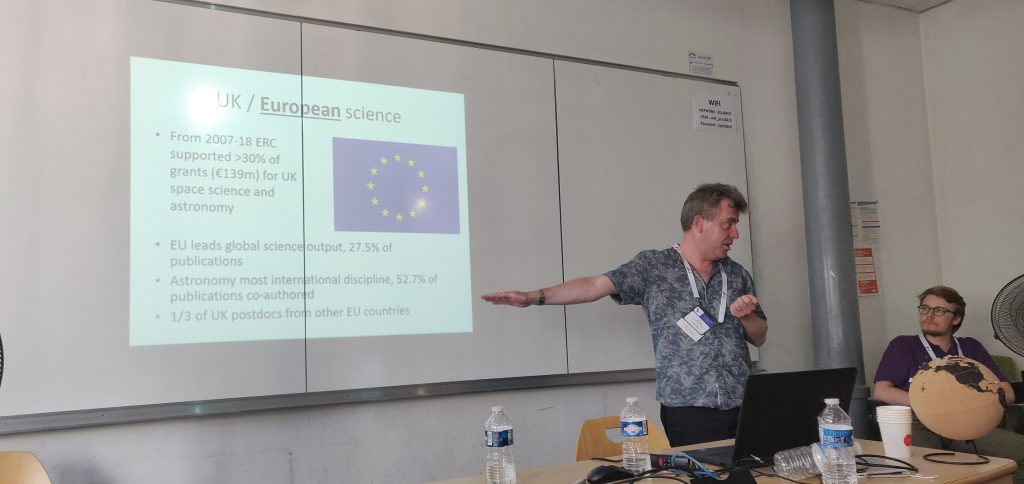
Finally, Niall Smith of the Cork Institute of Technology / Blackrock Castle Observatory in Ireland talked about how the conversion of a 16th century castle into a science destination was enabled initially through engagement with decision makers on a local level and has led to partnerships across Ireland and beyond. Niall also discussed how the success of Blackrock Castle Observatory’s public enagement had played an important role in catalysing and developing Ireland’s first National Space Strategy for Enterprise through its thought-leadership in space policy development.
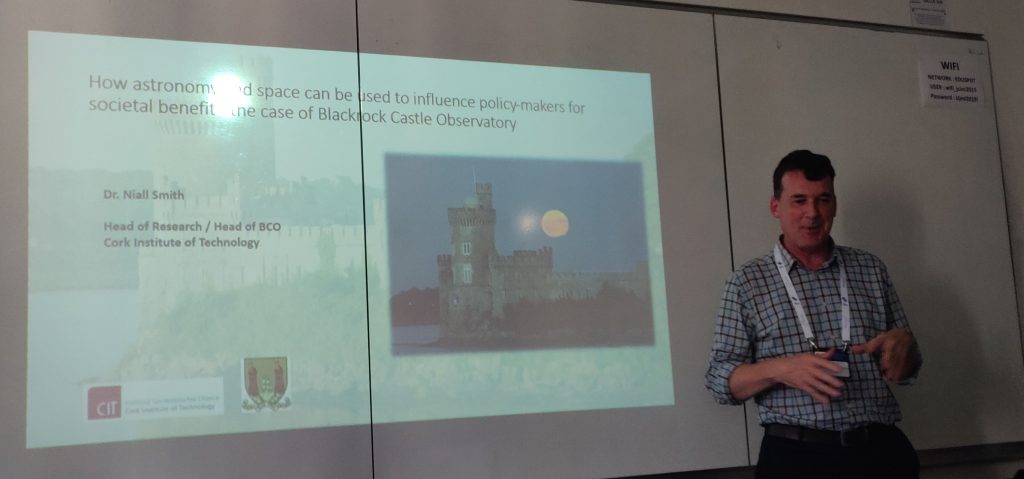
Many thanks to Karen O’Flaherty (ESA), Mike Bode (EAS), Robert Massey (RAS), Konstantina Moutsouroufi (U. Athens) and Eric Lagadec (Observatoire de la Côte d’Azur) for their work in preparing a very successful session. Special thanks to Nantia Moutsouroufi for the images included in this post.
Find out more about previous EWASS “Making the Case for Astronomy” sessions in reports from Prague in 2017 and in Liverpool in 2018.

